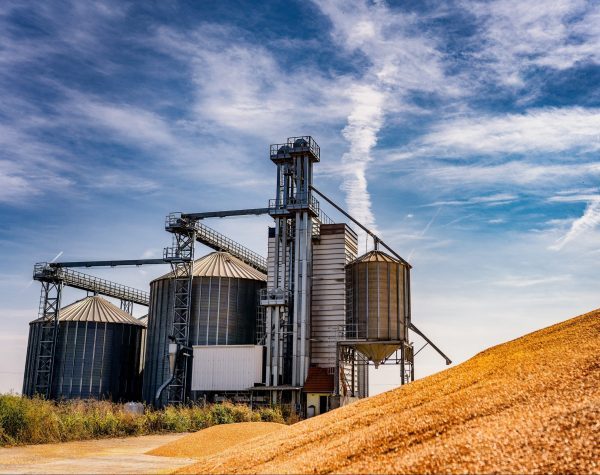Farmers throughout the U.S. hope that 2020 will provide a better harvest and more reliable grain storage than the previous two years, which were unusually wet. Many farmers had some success with their crops, but harvest time brought grain storage process challenges that were compounded by the long wet season.
The harvested corn was slow to, or altogether failed to, reach optimum humidity levels for safe and productive grain storage in many cases. An average humidity level of 15% or less is ideal for short-term storage (up to six months) and 13% for long-term storage (over six months). Many farmers still face challenges for the stored grain throughout the season.
Signs Your Grain Storage Issues May Be Building
Moisture and temperature still remain the two biggest factors that affect grain storage. Here’s what to look out for in your grain storage bins this spring and summer:
Sign #1: Odd Odor
Any musty or spoiled odor likely indicates excess heat and moisture. This can be due to a number of factors. A challenging harvest, such as that of 2019, means the corn requires more drying time and more handling between steps. The more handling that occurs, the more the kernels begin to break down. This beginning decomposition results in the likelihood of a greater amount of fines within the bin. Fines tend to settle in the middle of the silo, decreasing airflow throughout the bin, even with fan aerators. If these fines are not removed and/or stirred in order to dislodge, the heat increases in the center from limited airflow. Heat results in moisture and spoiled grain.
Sign #2: Crusty Top
Increased moisture inside a silo can result in a crusty layer that forms overtop the grain. This can lead to increased safety hazards for entry, as well as trapped moisture and more spoilage and damage.
Sign #3: Bridged-up Grain
Proper aeration is necessary to prevent grain from clogging up and forming a wall that can appear stable but actually is not. A wall might be holding up several tons of grain, but a slight dislodgement could produce a dangerous collapse.
Sign #4: Insect Infestation
The movement of insects inside a silo or bin, induced by overcrowding and response to heat, can increase the temperature of stored grain to as high as 110∞F.
Precautions to Take when Inspecting or Managing Your Storage Bins:
Wear a mask – Spoiled grain holds millions of tiny mold spores, which can easily become airborne when disturbed. Respiratory protection when entering these bins is imperative. The airborne mold spores can quickly cause acute lung issues, even leading to permanent lung damage.
Don’t step on the top of the grain – Do not put weight on top of a grain pile that appears to be a solid without first checking the hardness with a poke rod. A crust may have formed and your weight could break it, resulting in a fall into the empty hole beneath.
Dislodge blockages carefully – Never dislodge a grain blockage from the bottom of the buildup, which could result in an avalanche and injury or death. Working from the top of the buildup with a harness and pulley system can also result in injuries if not handled with extreme care and skill. Calling in the professionals is often the safest and most efficient method of cleaning grain buildup.
Grain Storage Bin Service by Professionals
There are many advantages to having grain storage bins inspected and cleaned by a professional, including avoiding dangers like entrapment and suffocation. Injuries and fatalities are numerous and well documented—as well as completely preventable.
Tight profit margins and short operational windows may be concerns when deciding whether or not to hire a professional company to clean your grain silos, however a professional cleaning often results in overall savings far greater than the initial investment. When issues do occur, a professional is much better equipped to mitigate the problem with as little downtime as possible.
At Mole•Master™, our record of safety, experience and quality results has made us one of the top silo cleaning and inspection companies in the world. Our proprietary silo cleaning equipment eliminates the need for human entry so all employees can remain safe and your silos can return to production quickly.
For more information about silo cleaning or inspection, fill out this quote request or call us today at 1.800.322.6653.


